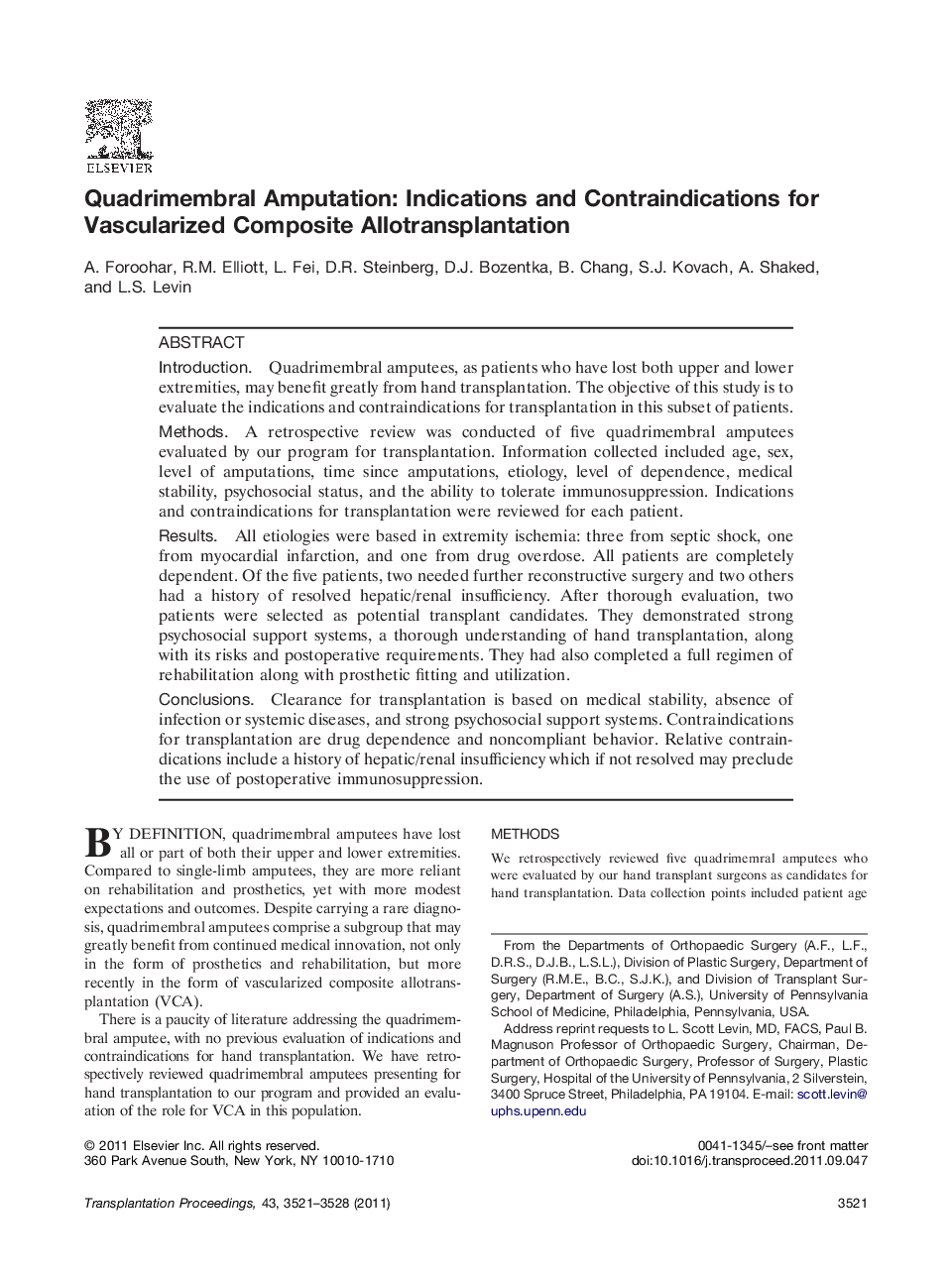| Article ID | Journal | Published Year | Pages | File Type |
|---|---|---|---|---|
| 4258634 | Transplantation Proceedings | 2011 | 8 Pages |
IntroductionQuadrimembral amputees, as patients who have lost both upper and lower extremities, may benefit greatly from hand transplantation. The objective of this study is to evaluate the indications and contraindications for transplantation in this subset of patients.MethodsA retrospective review was conducted of five quadrimembral amputees evaluated by our program for transplantation. Information collected included age, sex, level of amputations, time since amputations, etiology, level of dependence, medical stability, psychosocial status, and the ability to tolerate immunosuppression. Indications and contraindications for transplantation were reviewed for each patient.ResultsAll etiologies were based in extremity ischemia: three from septic shock, one from myocardial infarction, and one from drug overdose. All patients are completely dependent. Of the five patients, two needed further reconstructive surgery and two others had a history of resolved hepatic/renal insufficiency. After thorough evaluation, two patients were selected as potential transplant candidates. They demonstrated strong psychosocial support systems, a thorough understanding of hand transplantation, along with its risks and postoperative requirements. They had also completed a full regimen of rehabilitation along with prosthetic fitting and utilization.ConclusionsClearance for transplantation is based on medical stability, absence of infection or systemic diseases, and strong psychosocial support systems. Contraindications for transplantation are drug dependence and noncompliant behavior. Relative contraindications include a history of hepatic/renal insufficiency which if not resolved may preclude the use of postoperative immunosuppression.
